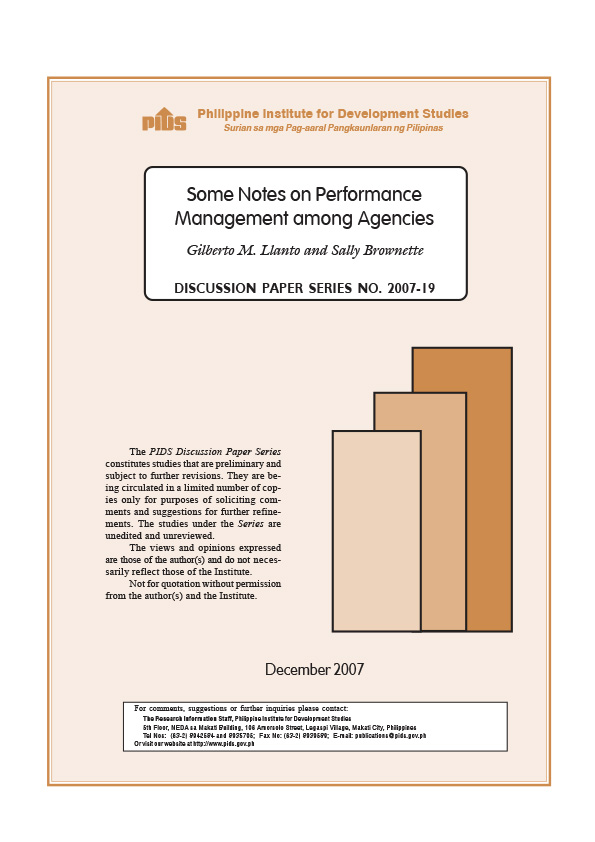In the past few years, the government has developed and installed a unique model of performance-based budgeting known as the Organizational Performance Indicator Framework (OPIF). The OPIF demonstrates the relationship between an agency’s programs, activities, and projects (PAPs), the goods and services produced or delivered (major final outputs or MFOs), and organizational outcomes and goals. This paper argues that in the short term, the government should first focus on achieving operational efficiency rather than move toward the goal of achieving allocative efficiency. To improve operational efficiency, the government through the Department of Budget and Management should develop an integrated performance management framework that emphasizes performance on two fronts: (a) building the capacity of agencies to manage on a performance basis, and (b) ensuring that the environment at the oversight level is performance-orientated.













